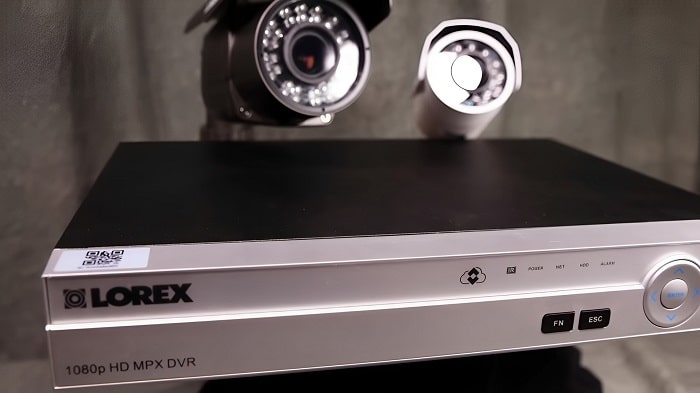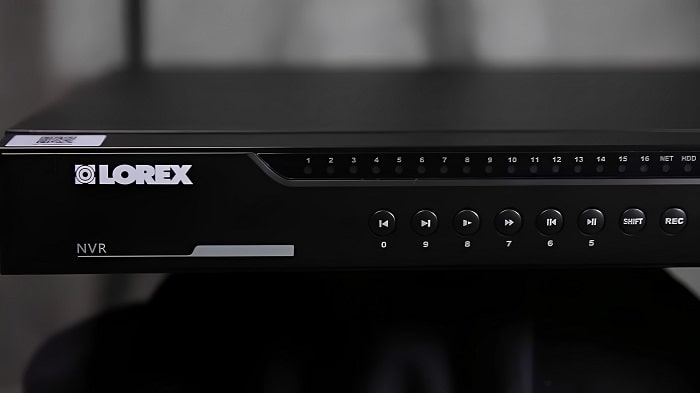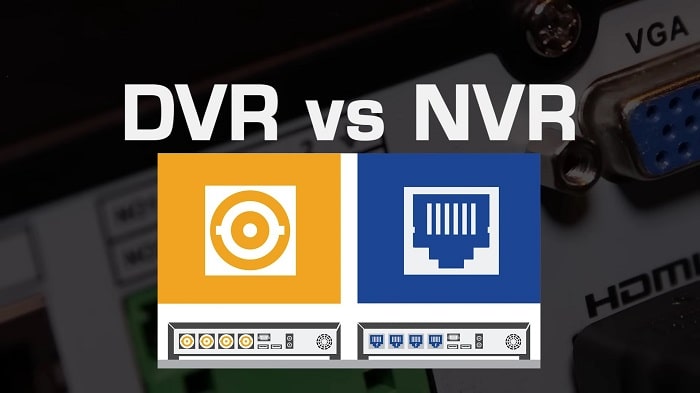NVR or DVR: Which is Better? Difference, Pros, and Cons
When it comes to home or business security systems, choosing the right recording device is crucial. NVR (Network Video Recorder) and DVR (Digital Video Recorder) are two popular options, each with its own set of features and advantages. These devices are the backbone of modern security systems, capturing, storing, and managing video footage crucial for safety and monitoring purposes.
The world of security and surveillance technology is as dynamic as it is diverse. Selecting between the newest DVR LawMate PV-500 or a not-so-advanced but cheaper NVR system may be challenging. That is why understanding the fundamental differences, as well as the advantages and disadvantages of each, is paramount to making an informed decision.
In this comprehensive guide, we will explore the differences, pros, and cons of NVRs and DVRs to help you make an informed decision for your surveillance needs.
DVR vs. NVR: What’s the Difference?

First, let’s clarify the fundamental differences between DVRs and NVRs.
DVR (Digital Video Recorder)
Analog Cameras: DVRs are designed to work with analog security cameras. These cameras transmit video signals in analog format, which the DVR then digitizes and compresses for storage.
Wired Connections: DVR systems typically require wired connections for both power and data transmission, making installation more complex.
Local Storage: DVRs store footage on an internal hard drive, and the storage capacity depends on the size of the hard drive installed.
Resolution Limitations: DVR systems often have limitations when it comes to high-resolution video, making them better suited for standard definition (SD) and some high-definition (HD) cameras.
NVR (Network Video Recorder)
IP Cameras: NVRs are compatible with IP (Internet Protocol) cameras. These cameras send digital video data over a network, eliminating the need for analog-to-digital conversion.
Network-Based: NVRs operate on a network, allowing for flexible installation and scalability. They can connect wirelessly or through Ethernet cables.
Centralized Storage: NVRs typically store video footage on external network-attached storage (NAS) devices or cloud-based storage solutions, providing greater storage capacity.
Higher Resolutions: NVR systems excel at handling high-resolution video, making them ideal for HD and 4K cameras.
Pros and Cons of DVRs

Pros
Cost-Effective: DVR systems are often more budget-friendly, making them a suitable choice for smaller setups or retrofits.
Local Storage: Having an internal hard drive allows for immediate access to footage without relying on an external network or internet connection.
Compatibility: If you already have analog cameras in place, DVRs can be a cost-effective option for upgrading your recording capabilities.
Cons
Limited Resolution: DVRs may struggle to provide the level of detail offered by high-resolution IP cameras, limiting the quality of recorded footage.
Wired Setup: The need for physical cables can make installation more challenging and restrict camera placement.
Scalability: Expanding a DVR system may require additional DVR units, leading to increased complexity.
Pros and Cons of NVRs

Pros
High Resolution: NVRs support high-resolution IP cameras, delivering sharper and more detailed video footage.
Flexible Installation: NVRs can connect wirelessly, simplifying installation and allowing for more flexible camera placement.
Scalability: NVR systems are highly scalable, making it easy to add more cameras or storage as needed.
Remote Access: NVRs offer remote access to your surveillance system via the Internet, allowing you to view live or recorded footage from anywhere.
Advanced Features: NVRs often come with advanced features such as motion detection, analytics, and easy integration with other smart home or business automation systems.
Cons
Higher Cost: NVR systems, especially those with high-resolution cameras, tend to have a higher initial cost.
Network Dependence: NVRs rely on a network connection, so interruptions or network issues can impact video access and storage.
Complexity: Setting up and configuring an NVR system may be more complex than a DVR, especially for those unfamiliar with networking.
Choosing the Right System for You

The choice between an NVR and a DVR ultimately depends on your specific needs and budget. Here are some factors to consider:
Camera Type: If you already have analog cameras in place, a DVR may be a cost-effective choice for upgrading your recording capabilities. If you’re starting from scratch or want high-resolution cameras, consider an NVR system.
Resolution Requirements: Assess the level of detail you need from your surveillance footage. If high resolution is crucial, NVRs are better equipped to handle it.
Budget: Determine your budget for both the initial purchase and ongoing maintenance. DVRs may be more cost-effective upfront, but NVRs offer greater scalability and advanced features.
Network Infrastructure: Consider your existing network infrastructure and whether you have the necessary equipment and knowledge to support an NVR system.
Remote Access: If you require remote access to your surveillance system, NVRs with internet connectivity are a better choice.
In conclusion, both NVRs and DVRs have their strengths and weaknesses, and the right choice depends on your specific surveillance requirements. Take the time to assess your needs, budget, and technical capabilities to make an informed decision that enhances your security and peace of mind.






